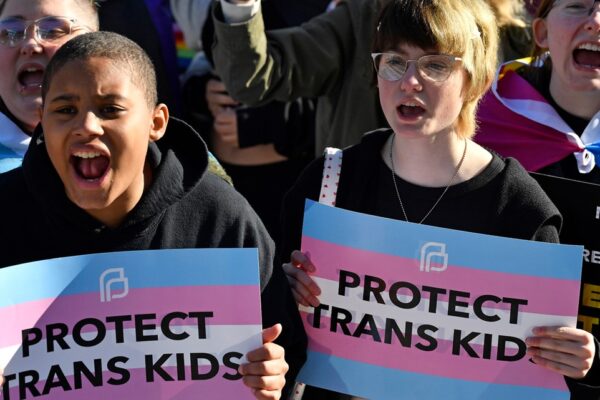As legislatures across the country enact anti-LGBTQ bills, one group has taken center stage in our national conversation: trans youth. Of the 491 anti-LGBTQ bills that we are tracking in this legislative session, 118 are bills seeking to restrict or ban gender-affirming care for trans kids. In the midst of all of this we are losing sight of the big picture. Trans kids are simply kids. And they’d like everyone else to let them be that. They don’t want to have to grow up fast, or be thrust into the spotlight. They want to manage their cheer team, build robots in their bedrooms, and go to homecoming with their friends.
So today, we’re passing them the mic, because well, the adults are talking too much and need to sit down and listen.

